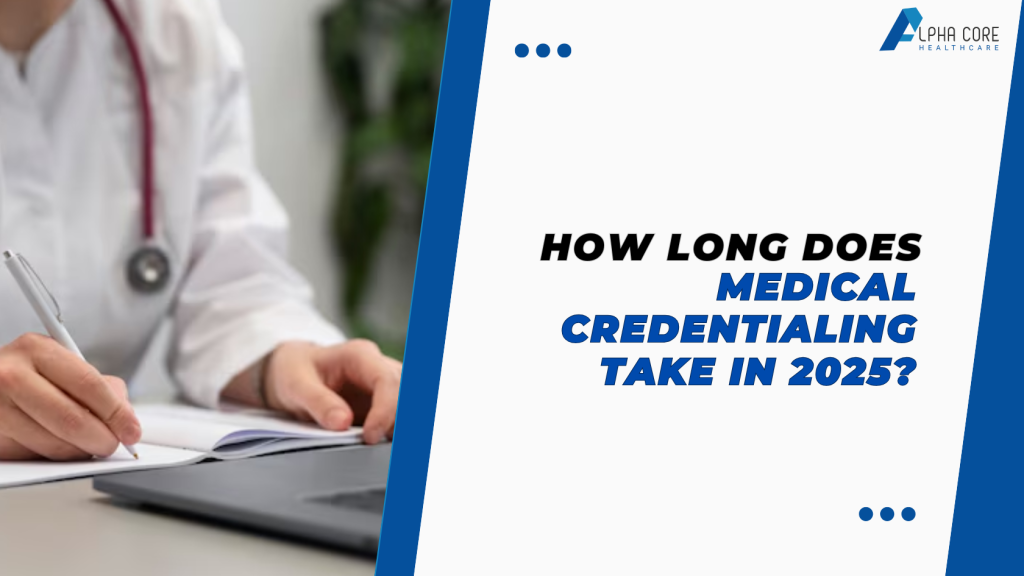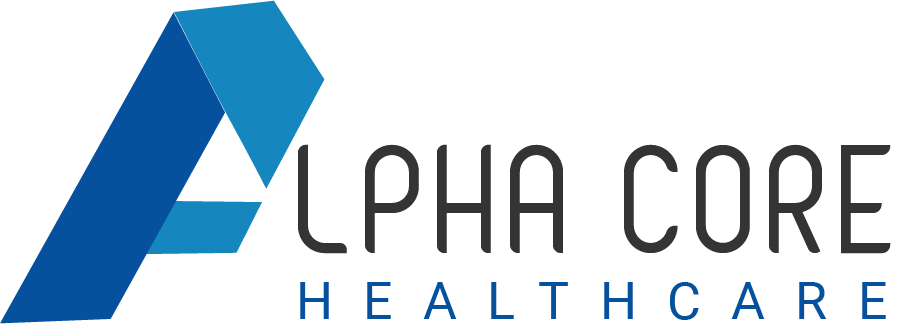How Long Does Medical Credentialing Take in 2025?
- Published: 06/05/2025

Medical credentialing is still a crucial process whereby health care practitioners ensure their credentials and become certified to deliver services in hospitals, insurance panels, and health care facilities. Owing to advancement in technology in 2025, medical credentialing timelines remain drastically different subject to a multitude of factors.
Here in this blog, we’ll go in-depth into how long Medical Credentialing takes in 2025, what factors influence the timeline, and how providers can make it go faster.
What is Medical Credentialing?
Medical credentialing is the process of verifying the education, training, experience, and professional standing of a healthcare practitioner. It must:
- Working in hospitals or clinics
- Join insurance company networks
- Ensure compliance with regulatory requirements
Credentialing ensures patient safety by confirming that providers are up to industry and state standards.
How long does medical credentialing take in 2025?
In 2025, Medical Credentialing generally takes between 60 to 180 days (approximately 2 to 6 months). But there are some that can shorten or prolong it.
Let’s break it down:
| Stage | Estimated Time |
|---|---|
| Gathering Documents | 1-2 weeks |
| Application Submission | 1 week |
| Primary Source Verification | 30-90 days |
| Committee Review and Approval | 30-60 days |
Factors That Affect Credentialing Timelines
- Completeness of Application: Holdup due to incomplete documents.
- Third-Party Response Time: Past employers, medical schools, and licensing boards must respond in a timely manner.
- State and Insurance Requirements: Several states and some insurers also impose other requirements.
- Volume of Applications: High peaks (e.g., residency period) can lead to backlogs.
- Technological Tools: Organizations with computerized credentialing programs get applications processed faster.
Medical Credentialing Trends of 2025
1. Increased Application of Automation
AI-verified software credentialing is business as usual these days. Computer systems reduce human error and automate document verification, which could eliminate weeks from the process.
2. Centralized Credentialing Databases
Platforms such as the CAQH ProView continue to automate data collection, enabling providers to enter their data one time for use by multiple organizations.
3. Provider Self-Service Portals
There are additional healthcare organizations that provide self-service portals whereby doctors can upload forms, monitor status on their application, and enjoy real-time updating.
Tips to Accelerate the Medical Credentialing Process
1. Get All Documents Ready in Advance
Provide photocopies of diplomas, DEA certificates, licenses, malpractice insurance, employment history, and references.
2. Maintain Information Current
Ensure that all application information is kept uniform in documents — inconsistencies lead to delays in verification.
3. Answer Promptly to Requests
If a credentialing coordinator needs more information or clarification, respond immediately to avoid a bottleneck.
4. Collaborate with Professional Credentialing Services
Professional firms are aware of the payer requirements and can manage the entire process effectively on your behalf.
What if Credentialing is Delayed?
Delays in credentialing can lead to:
- Lost revenue: You can't bill insurance without being enrolled.
- Work restrictions: Providers may not be permitted to treat patients until credentialed.
- Frustration: Administrative headaches faced by both providers and healthcare organizations.
That’s why it’s vital to get a jumpstart on credentialing early — ideally 90 to 120 days prior to a provider’s start date.
FAQ: Medical Credentialing in 2025
1. How long does it take to get credentialed with insurance companies?
Credentialing with insurance companies usually takes 90 to 120 days after the submission of a complete application.
2. Can a provider see patients while credentialing is pending?
Some facilities offer “temporary privileges” when credentialing is in progress, but this varies on the bylaws and risk policies of the organization.
3. Why is credentialing longer than anticipated?
Typical reasons are incomplete application, third-party verifiers’ delayed responses, delayed background checks, or increased volumes of applications.
4. What documents are required for medical credentialing?
Typical documents are:
- Medical licenses
- Board certifications
- DEA registration
- Malpractice insurance
- Education and training history
- Work history (last 5-10 years)
- References
5. Is credentialing quicker for telehealth providers?
Yes, most states have telehealth-friendly legislation that expedites credentialing for distant providers, although insurers will also require usual processing times.
Conclusion: Begin Early, Remain Prepared
In 2025, while automation has improved parts of the credentialing process, it still requires significant planning and attention to detail. Providers should start early, stay organized, and work with credentialing experts to minimize delays.
If you’re looking for fast, reliable credentialing services, Alpha Core Healthcare is here to help! We specialize in credentialing and enrollments, ensuring you can focus on patient care while we handle the paperwork.
Connect With Us
Have questions about credentialing, enrollments, or healthcare management? Our team is here to help.
- (302) 304-8686
- hello@alphacorehealthcare.com
- 3524 Silverside Rd, Wilmington, DE 19810, United States
Feel free to reach out to us. Required fields are marked *
Quick links
Contact Us
- (302) 304-8686
- hello@alphacorehealthcare.com
- 3524 Silverside Rd, Wilmington, DE 19810, United States
Copyright © 2026 Alpha Core Healthcare, All rights reserved.
